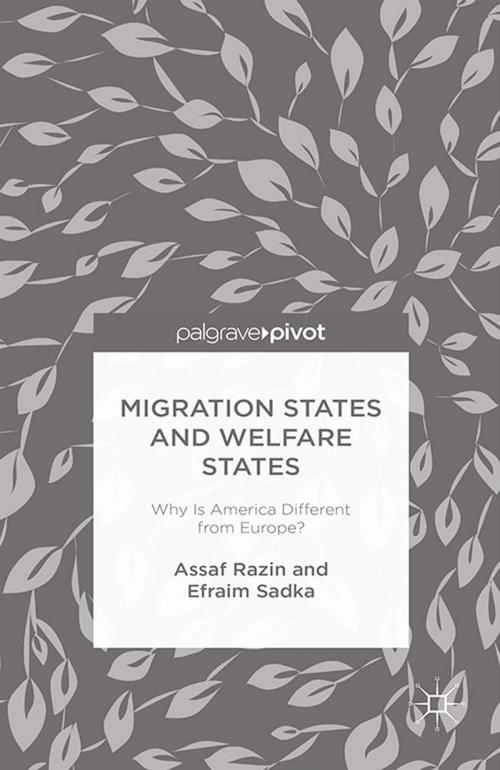Migration States and Welfare States: Why Is America Different from Europe?
Business & Finance, Economics, Urban & Regional, Public Finance| Author: | A. Razin, E. Sadka | ISBN: | 9781137443809 |
| Publisher: | Palgrave Macmillan US | Publication: | November 19, 2014 |
| Imprint: | Palgrave Pivot | Language: | English |
| Author: | A. Razin, E. Sadka |
| ISBN: | 9781137443809 |
| Publisher: | Palgrave Macmillan US |
| Publication: | November 19, 2014 |
| Imprint: | Palgrave Pivot |
| Language: | English |
Over the last three decades, Europe's generous social benefits have encouraged a massive surge of 'welfare migration,' especially of low skilled laborers. At the same time, the US has attracted many highly skilled migrants, which in turn promotes internal innovation. Restrictions on the international mobility of labor are arguably the largest policy obstructions for the international economy today. A variety of studies suggest that even a small reduction in barriers to migration will result in the growth of significant global welfare benefits. Migration States and Welfare States focuses on a central tension faced by policy makers in countries that receive migrants from lower wage countries. Such countries are typically highly productive and rich in capital. These attributes, coupled with the host country's welfare system, attract low-skilled migrants, who find a generous welfare state particularly attractive, while deterring skilled migrants, who recognize that welfare states likely have higher redistributive taxes.
Over the last three decades, Europe's generous social benefits have encouraged a massive surge of 'welfare migration,' especially of low skilled laborers. At the same time, the US has attracted many highly skilled migrants, which in turn promotes internal innovation. Restrictions on the international mobility of labor are arguably the largest policy obstructions for the international economy today. A variety of studies suggest that even a small reduction in barriers to migration will result in the growth of significant global welfare benefits. Migration States and Welfare States focuses on a central tension faced by policy makers in countries that receive migrants from lower wage countries. Such countries are typically highly productive and rich in capital. These attributes, coupled with the host country's welfare system, attract low-skilled migrants, who find a generous welfare state particularly attractive, while deterring skilled migrants, who recognize that welfare states likely have higher redistributive taxes.















